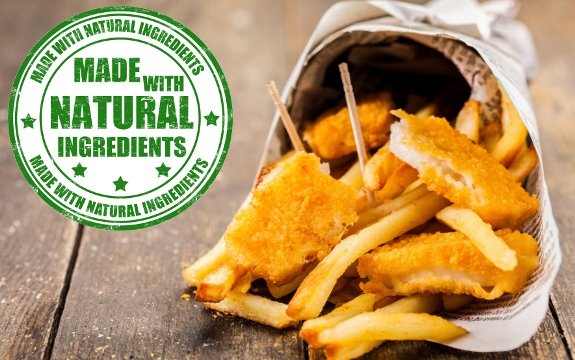Food Companies Using ‘All Natural’ Label Less Due to Consumer Awareness

 The number of new food and beverage products in the U.S. with the label “natural” on them has fallen in recent years, this after the use of that word exploded in popularity. In 2009, 30.4% of new food products and 45.5% of new beverage products released in the U.S. were labeled all natural. This year, 21.1% of new food products and 34% of new beverage products carried that label.
The number of new food and beverage products in the U.S. with the label “natural” on them has fallen in recent years, this after the use of that word exploded in popularity. In 2009, 30.4% of new food products and 45.5% of new beverage products released in the U.S. were labeled all natural. This year, 21.1% of new food products and 34% of new beverage products carried that label.
While companies are seemingly still focusing on the healthy market, they seemed to have figured out that many consumers are no longer falling for the “all natural” trap.
So, what changed? Consumers caught on to the lie. They realized they were being duped into buying products that were far from “natural.”
MSN Money reports that at least 100 lawsuits have been filed against food makers like Kashi and Ben & Jerry’s for misleading labels, where the companies said their products were “natural”, but they actually aren’t. Pepsi Co. has recently agreed to settle out of court for $9 million over a class action lawsuit regarding the labels ‘natural’ and ‘non-GMO’ on their bottles. The claims were misleading since the products are made with GMO ingredients, as well as synthetic and ‘unnatural’ items.
The issue, though, is that there are no regulations on how the natural label can be used. The term ‘all natural’ has no official meaning, so food makers took it upon themselves to use clever wording like “Made with Natural Ingredients” or “All-Natural” on their labels to sell more products.
Some food makers used these labels at least relatively wisely, applying it when the product contained no artificial colors, flavors, or MSG, as Frito-Lay did three years ago. But their products still contained genetically modified grains and oils, products most consumers would not consider “natural.”
The fact that fewer new foods and beverages feature the “natural” label may be a good thing, though that seems counterintuitive. It means food-makers are being forced into some accountability for their marketing techniques. It also means consumers will be forced to look more closely at the foods they purchase, not relying on some meaningless label on the front and instead researching the label on the back.
When the food industry taps into a consumer trend, they run with it, oftentimes regardless of the potential impact or how their play on consumer-wants could be misconstrued. The overuse of the “natural” label on processed foods is a perfect example. The good news is these labels are becoming less common as consumers raise hell for being misled.
